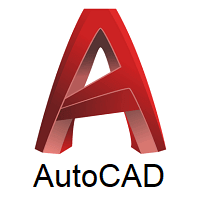Autocad Design Center And Tool Palette
AutoCAD Tutorial

AutoCAD is a Computer-Aided Design (CAD) drafting software, marketed by Autodesk. It is a commercial 2D and 3D drafting software. The AutoCAD software is used for several applications, including floor plan design, blueprints for buildings, bridges, chip design, etc.
The AutoCAD was designed to help the users to achieve the realistic appearance of their projects. It is used by professionals in various industries to enhance their design, which increases the quality and productivity of their product. It has also increased the speed of manufacturing of the parts.
What is AutoCAD?
AutoCAD stands for Autodesk Computer-Aided Design. It is a drafting and design software application developed and marketed by Autodesk. The AutoCAD software is used in industries, by architects, designers, graphic designers, city planners, managers, and other professionals worldwide.
The commercial CAD programs were used before the development of AutoCAD. The AutoCAD was run on microcomputers with an internal graphics controller. The commercial CAD programs ran on the minicomputers or mainframe computers, where each CAD operator worked at a separate graphics terminal.
The AutoCAD software is available in various languages, namely, English, Italian, Spanish, German, French, Spanish, Albanian, Polish, Russian, Czech, Hungarian, Chinese Simplified and Traditional, and Brazilian Portuguese. The AutoCAD has developed for various programs and fields.
Features of AutoCAD
The features of AutoCAD are listed below:
- 3D navigation
- Visual styles
- 3D scanning and point clouds
- Data extraction
- Section planes
- Data linking
- Layouts
- Tool palettes
- Express tools
- Fields
- Dynamic blocks
- Command lines
- Import 3D models
- User interaction
- Multifunctional Grips
- Revision clouds
- Image references
- Tables
- Solid, surface and Mesh modeling
- Photorealistic rendering
- Section and Projected views
- PDF Import and Export
- Panels
- Ribbon tabs
- Isometric view
- AutoCAD Mobile App
- Collaboration
- Parametric constraints
- 3D Scanning
- Point clouds
Products of AutoCAD
- Free trials
- 3D CAD Software
- 3D Animation
- 3D Modelling Software
- 2D CAD Drafting
- 3D Printing
- Civil Engineering
- Construction (US site)
- Manufacturing (US site)
- Sketching and Painting
- Product Design
- Find by Industry
History of AutoCAD
The Interact CAD was the first program began in 1977 and released in 1979. The AutoCAD was derived from the Interact CAD program, which is also referred to as MicroCAD in early Autodesk documents. It was written before Autodesk formation.
The co-founder of Autodesk was Michael Riddle.
The first version of AutoCAD by Autodesk was demonstrated in 1982 and released in December, in the same year. It also supported CP/M-80 computers. By the year 1986, in March, the AutoCAD became the most effective CAD program worldwide.
The 2020 version was marked as the 34th version released by the AutoCAD for Windows. The 2019 version was marked as the 9th consecutive version for the MAC. The common extension for the file format in AutoCAD is .dwg.
The DXF file format has become the de-facto standard for 2D drawing exchange and CAD data interoperability.
Prerequisite
The requirement to learn AutoCAD is knowledge of Computers fundamentals, creative thinking, and basic designing ideas. It is a design software having different settings and procedures. The basic part of AutoCAD is easy, but the rest is quite complex.
Audience
AutoCAD is used by graphic designers, architects, engineers, city planners, project managers, professionals, etc. It is designed for beginners as well as professionals to create drawings and realistic models. It is the fast and best CAD software used worldwide.
Problem
We assure that you will not find any problem with this AutoCAD Tutorial. But if there is any mistake, please post the problem in the contact form.
Autocad Design Center And Tool Palette
Source: https://www.javatpoint.com/autocad
Posted by: fishfriese1951.blogspot.com

0 Response to "Autocad Design Center And Tool Palette"
Post a Comment